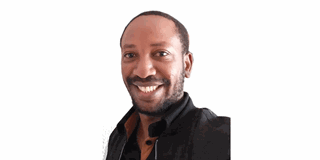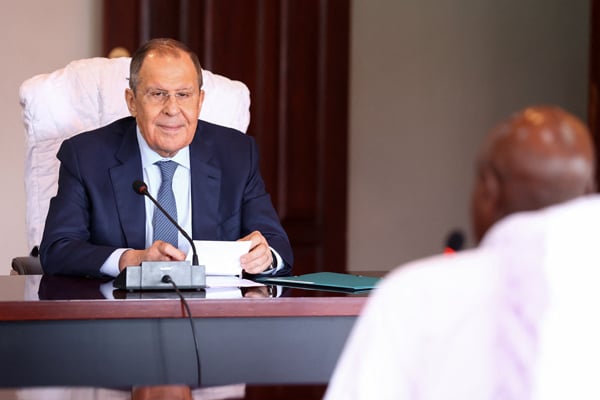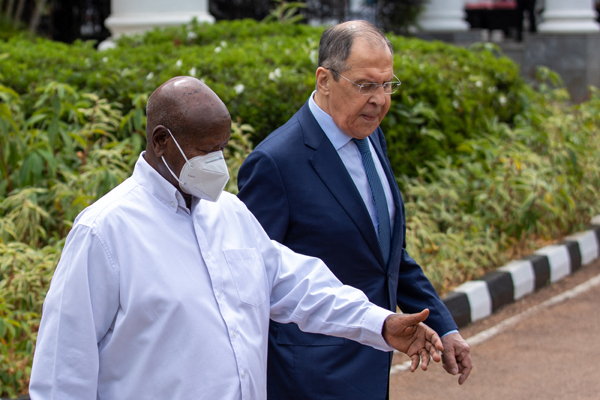Prime
Africa should make own friends, foes

Author: Alex Masereka. PHOTO/FILE
What you need to know:
- With global powers seeking to find allies in Africa, the continent and its people should hold the stance defined...
In just one month, President Museveni has hosted the Cuban and Russian Foreign Affairs ministers. Cuba and Russia are mutually at loggerheads with the US, both countries facing a string of economic sanctions from the latter.
Havana has had to bear the brunt of a US Economic embargo for the last 61 years, while in Russia’s case, Uncle Sam has intensified its hostility towards Moscow in the past decade with sanctions targeting Russians, especially those close to President Vladimir Putin. The friction, which hasn’t been helped by Russia’s operations in Ukraine, is reminiscent of the Cold War.
Coincidentally, both Cuba and Russia were key players in the Cold War that pitted the East (Soviet Union) against the West led by the US. The Cuban missile crisis that made the world hold its breath for fear of a nuclear war, had the US and Soviet Union as the other players.
Therefore, patriotic Ugandans and Pan Africanists across the continent should give President Museveni credit for sending the west a very strong message on who and how Uganda should relate with.
As he clearly put it, the question as to whether he is pro East or Pro West is “idiotic” because one should be allowed to make their own friends and enemies.
It’s a stance Mwalimu Julius Nyerere took as he rowed the murky waters of global politics during his time.
Whenever the US imposes sanctions against a nation, they usually expect their allies to follow suit in isolating the said country, something that strips countries of their sovereignty, their right to decide who to hate and love.
Whether consciously or unconsciously, Western countries have made sure to side-line or water down, Russia and Cuba’s role in Africa’s fight for self-determination.
Although the contribution of the Cubans is more pronounced in Southern Africa and how they helped Agostinho Neto to get rid of the Portuguese colonialists, countries such as DR Congo, Algeria, Guinea Bissau, Namibia, Mozambique, etc, also felt the impact. Big names in Africa’s anti-colonial struggle, the likes of Kwame Nkrumah, Julius Nyerere, Agostinho Neto, Samora Machel, Amilcar Cabral, etc all crossed paths with El Comandante Fidel Castro.
Cuba’s contribution is probably summed up in the defining battle of Cuito Cuanavale in Angola, which was a deciding factor in the war with South African apartheid forces in the late 1970s and 80s, and whose impact had far-reaching consequences, including the end of evil racial segregation.
Uganda is set to open its embassy in Cuba. The decision is what analysts would describe in their cliché way as ‘a step in the right direction.’
However, it should also serve as a reminder to other African countries about the relations between Cuba and our continent. In the Cuban revolution started and led by El Comandante en Jefe Fidel Castro, Africa found a friend, and inspiration to further challenge colonialism in the second half of the 20th Century.
Uganda already has a pool of experts in science/medicine who have been trained from Cuba’s famed institutions in addition to military officers.
With global powers seeking to find allies in Africa, the continent and its people should hold the stance defined by President Museveni and others; to determine our destiny, and be open to choosing our friends and enemies without the imposition of others as we chart our way to ultimate autonomy.
His Pan African statements, usually ignored by the media in the hunt for “comments on current affairs,” should dominate discourse in Pan African debates, and schools about the future of this continent vis-a-vis renewed interest from old colonial powers
Mr Alex Joel Masereka is a Pan Africanist and member of the Uganda-Cuba Solidarity Movement




